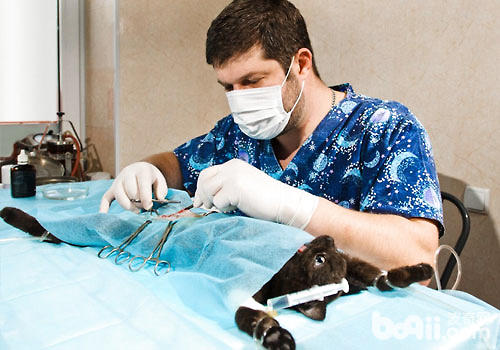What do we need to do with cats before surgery?
Cats always go through some large and small operations in their life, and there are two extremely important parts in the operation, before the operation and after the operation, and the care before the operation can be said to determine the success of the operation, just like our people
According to the different causes of surgery, we can divide surgery into two categories, one is physiological surgery and the other is pathological surgery.
I. Preoperative preparation
(1) Preoperative preparation for physiological surgery:
Physiological surgery is mainly the sterilization of cats, of course, it also includes the special requirements of some parents such as vasectomy, vocal cord removal, ear erection, tail docking and so on.
1. The owner's preoperative preparation at home
Mainly, fasting for 8 hours before surgery, and strictly forbidding water for 2-4 hours before surgery.
2. Preoperative preparation in the hospital
After bringing the animal to the hospital, do not blindly perform anesthesia and surgery immediately.
Therefore, it is recommended that the inspection items that should be done before surgery include:
(1) Routine examination: including inspection, auscultation, and palpation.
(2) blood routine: must be done.
(3) Biochemical examination: The examination items include ALT, ALKP, TP, BUN, CRE, GLU and other six items.
(4) X-ray films and B-ultrasound: X-ray films are mainly for the examination of the heart and lungs, abdominal organs, and bones.
3. After a comprehensive understanding of the pet's physical condition, the doctor will formulate an appropriate anesthesia and surgical plan according to the situation.
(2) Preoperative preparation for pathological surgery
Most of the animals in pathological surgery are in poor health condition.
The biggest difference between pathological surgery and non-pathological surgery is to choose a more appropriate timing of surgery.
What needs to be mentioned here is that non-open fractures, especially limb bone fractures, are not emergencies, and surgery can be performed after the animal's physical state is stable.

cat in surgery
2. Nutrition management
Malnourished animals are often accompanied by hypoalbuminemia, often coexisting with anemia and hypovolemia, thus reducing the ability to tolerate blood loss and shock.
Cats who cannot feed themselves before surgery can consider placing a nasogastric tube to give nutrients.
Animals that cannot be placed on a nasogastric tube (such as gastrointestinal obstruction/rupture) are given nutrients by total parenteral nutrition (TPN), including glucose, amino acids, fat emulsions, electrolytes, vitamins, etc., through intravenous infusion.
Animals with limited and elective surgery should have one week of nutritional management before surgery.
III. Treatment of specific diseases
When an animal suffers from some specific disease and needs surgery, the specific disease should be detected and treated.
1. Diabetes
Animals suffering from diabetes have poor anesthesia tolerance and poor postoperative recovery. Blood sugar and urine sugar must be detected before surgery, and insulin and infusion should be injected according to the situation.
2. Heart disease
Animals suffering from heart disease must check blood oxygen and blood pressure before surgery, and give oxygen therapy and blood pressure lowering drugs. At the same time, low-salt and diuretic drugs used in the long-term treatment of heart disease animals are likely to cause water and electrolyte disorders, so they should be given before surgery.
3. Liver disease
Before surgery, animals with liver disease should undergo complete liver function test, liver protection treatment and nutritional therapy, and limited or elective surgery should be performed when liver function recovers.
4. Kidney disease
Animals suffering from renal disease have high risk of anesthesia and poor surgical tolerance. Animals with moderate and mild renal impairment are treated with internal medicine and the level of renal function is closely monitored. Animals with severe renal impairment that must be operated can be considered for peritoneal dialysis before surgery.
